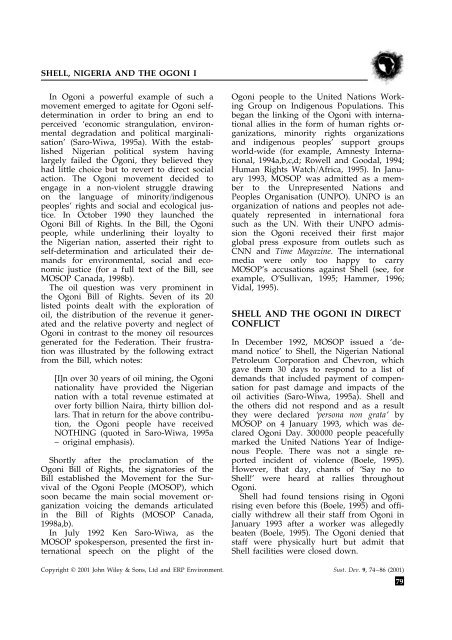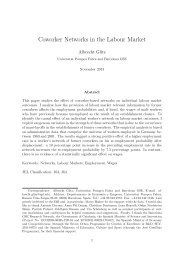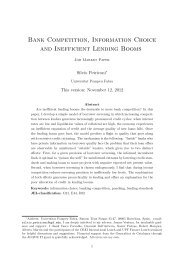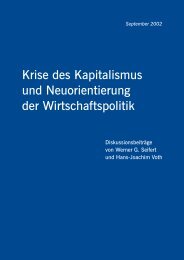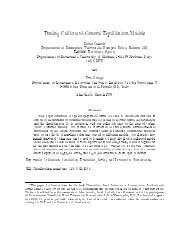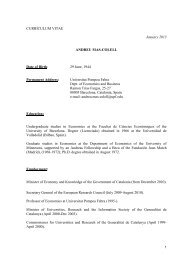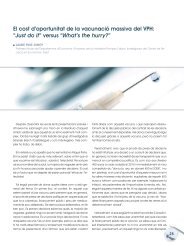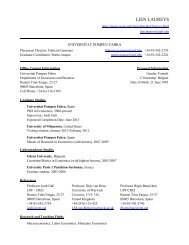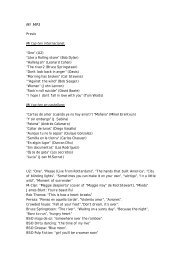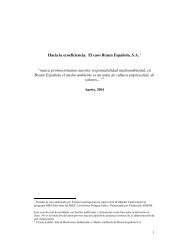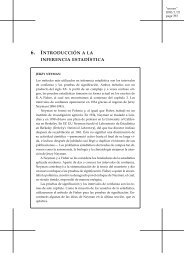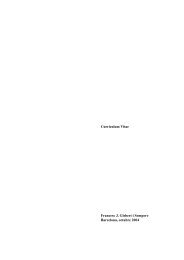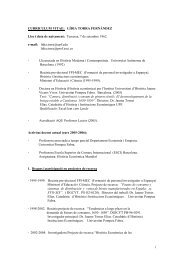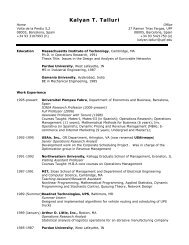SHELL, NIGERIA AND THE OGONI. A STUDY IN UNSUSTAINABLE ...
SHELL, NIGERIA AND THE OGONI. A STUDY IN UNSUSTAINABLE ...
SHELL, NIGERIA AND THE OGONI. A STUDY IN UNSUSTAINABLE ...
Create successful ePaper yourself
Turn your PDF publications into a flip-book with our unique Google optimized e-Paper software.
<strong>SHELL</strong>, <strong>NIGERIA</strong> <strong>AND</strong> <strong>THE</strong> <strong>OGONI</strong> I<br />
In Ogoni a powerful example of such a<br />
movement emerged to agitate for Ogoni selfdetermination<br />
in order to bring an end to<br />
perceived ‘economic strangulation, environmental<br />
degradation and political marginalisation’<br />
(Saro-Wiwa, 1995a). With the established<br />
Nigerian political system having<br />
largely failed the Ogoni, they believed they<br />
had little choice but to revert to direct social<br />
action. The Ogoni movement decided to<br />
engage in a non-violent struggle drawing<br />
on the language of minority/indigenous<br />
peoples’ rights and social and ecological justice.<br />
In October 1990 they launched the<br />
Ogoni Bill of Rights. In the Bill, the Ogoni<br />
people, while underlining their loyalty to<br />
the Nigerian nation, asserted their right to<br />
self-determination and articulated their demands<br />
for environmental, social and economic<br />
justice (for a full text of the Bill, see<br />
MOSOP Canada, 1998b).<br />
The oil question was very prominent in<br />
the Ogoni Bill of Rights. Seven of its 20<br />
listed points dealt with the exploration of<br />
oil, the distribution of the revenue it generated<br />
and the relative poverty and neglect of<br />
Ogoni in contrast to the money oil resources<br />
generated for the Federation. Their frustration<br />
was illustrated by the following extract<br />
from the Bill, which notes:<br />
[I]n over 30 years of oil mining, the Ogoni<br />
nationality have provided the Nigerian<br />
nation with a total revenue estimated at<br />
over forty billion Naira, thirty billion dollars.<br />
That in return for the above contribution,<br />
the Ogoni people have received<br />
NOTH<strong>IN</strong>G (quoted in Saro-Wiwa, 1995a<br />
– original emphasis).<br />
Shortly after the proclamation of the<br />
Ogoni Bill of Rights, the signatories of the<br />
Bill established the Movement for the Survival<br />
of the Ogoni People (MOSOP), which<br />
soon became the main social movement organization<br />
voicing the demands articulated<br />
in the Bill of Rights (MOSOP Canada,<br />
1998a,b).<br />
In July 1992 Ken Saro-Wiwa, as the<br />
MOSOP spokesperson, presented the first international<br />
speech on the plight of the<br />
Ogoni people to the United Nations Working<br />
Group on Indigenous Populations. This<br />
began the linking of the Ogoni with international<br />
allies in the form of human rights organizations,<br />
minority rights organizations<br />
and indigenous peoples’ support groups<br />
world-wide (for example, Amnesty International,<br />
1994a,b,c,d; Rowell and Goodal, 1994;<br />
Human Rights Watch/Africa, 1995). In January<br />
1993, MOSOP was admitted as a member<br />
to the Unrepresented Nations and<br />
Peoples Organisation (UNPO). UNPO is an<br />
organization of nations and peoples not adequately<br />
represented in international fora<br />
such as the UN. With their UNPO admission<br />
the Ogoni received their first major<br />
global press exposure from outlets such as<br />
CNN and Time Magazine. The international<br />
media were only too happy to carry<br />
MOSOP’s accusations against Shell (see, for<br />
example, O’Sullivan, 1995; Hammer, 1996;<br />
Vidal, 1995).<br />
<strong>SHELL</strong> <strong>AND</strong> <strong>THE</strong> <strong>OGONI</strong> <strong>IN</strong> DIRECT<br />
CONFLICT<br />
In December 1992, MOSOP issued a ‘demand<br />
notice’ to Shell, the Nigerian National<br />
Petroleum Corporation and Chevron, which<br />
gave them 30 days to respond to a list of<br />
demands that included payment of compensation<br />
for past damage and impacts of the<br />
oil activities (Saro-Wiwa, 1995a). Shell and<br />
the others did not respond and as a result<br />
they were declared ‘persona non grata’ by<br />
MOSOP on 4 January 1993, which was declared<br />
Ogoni Day. 300000 people peacefully<br />
marked the United Nations Year of Indigenous<br />
People. There was not a single reported<br />
incident of violence (Boele, 1995).<br />
However, that day, chants of ‘Say no to<br />
Shell!’ were heard at rallies throughout<br />
Ogoni.<br />
Shell had found tensions rising in Ogoni<br />
rising even before this (Boele, 1995) and officially<br />
withdrew all their staff from Ogoni in<br />
January 1993 after a worker was allegedly<br />
beaten (Boele, 1995). The Ogoni denied that<br />
staff were physically hurt but admit that<br />
Shell facilities were closed down.<br />
Copyright © 2001 John Wiley & Sons, Ltd and ERP Environment. Sust. Dev. 9, 74–86 (2001)<br />
79


